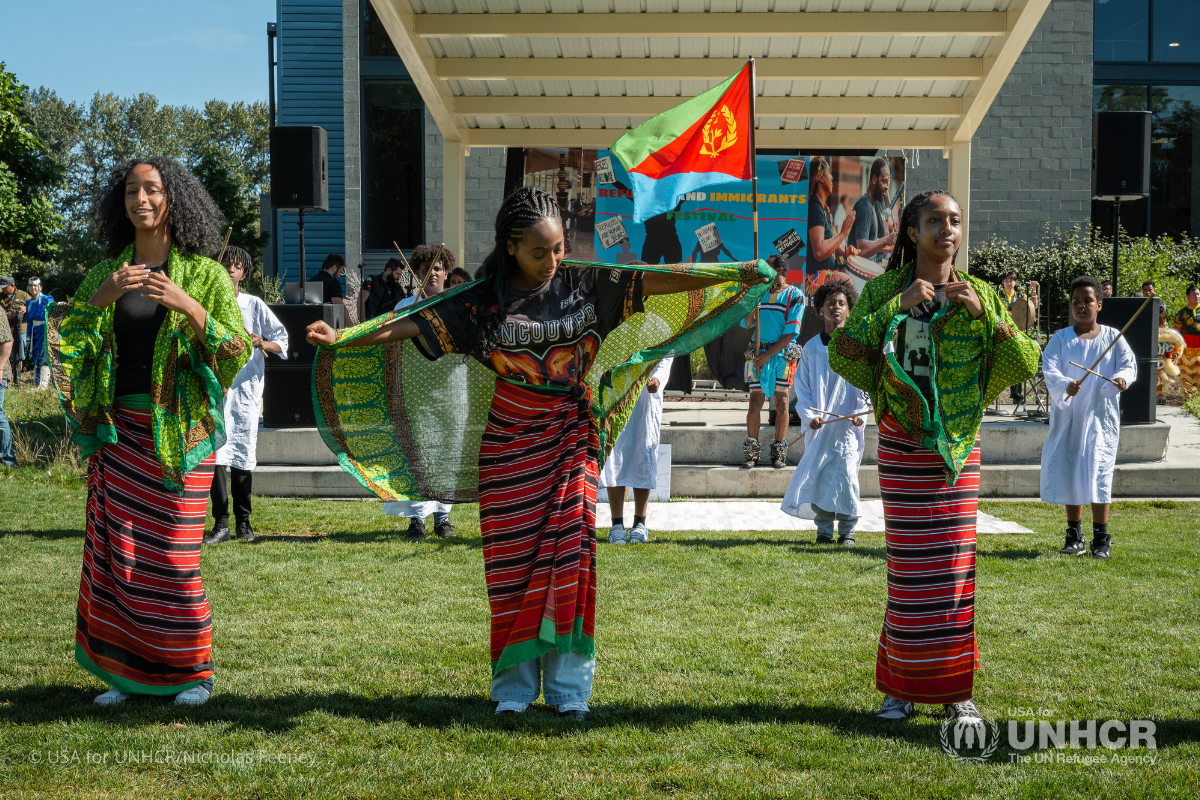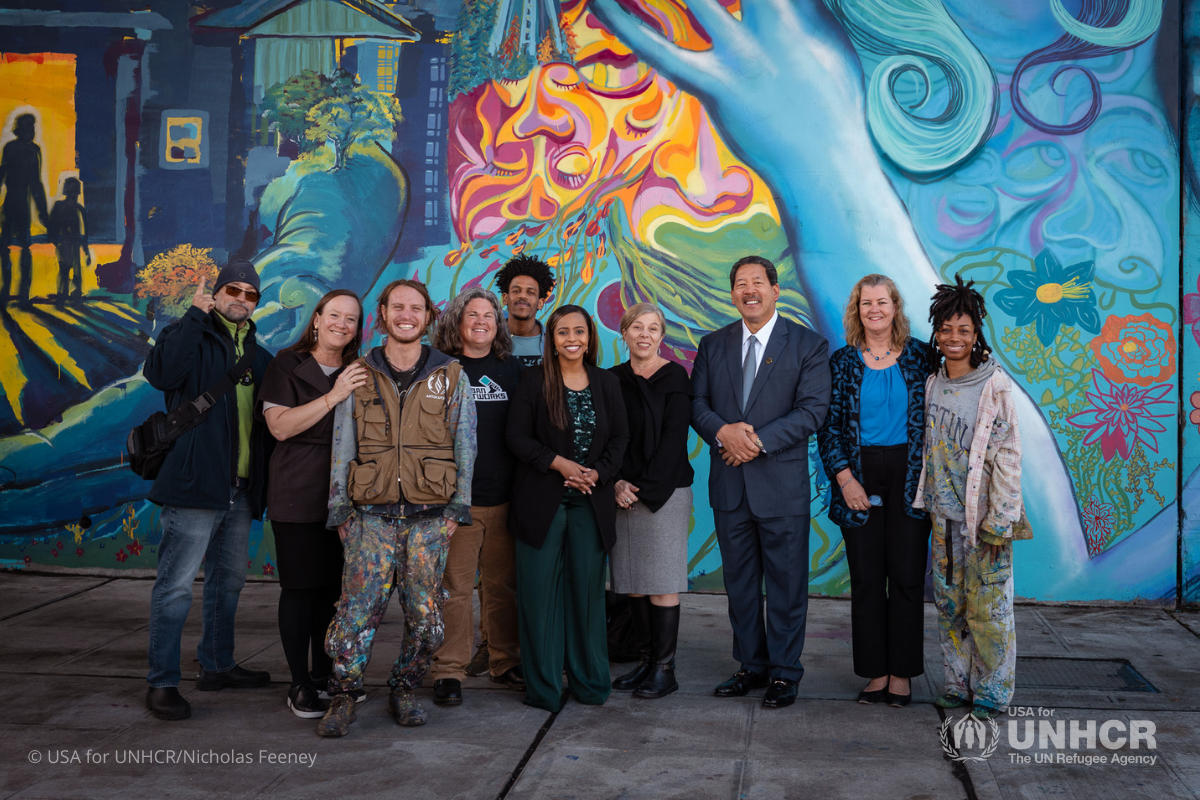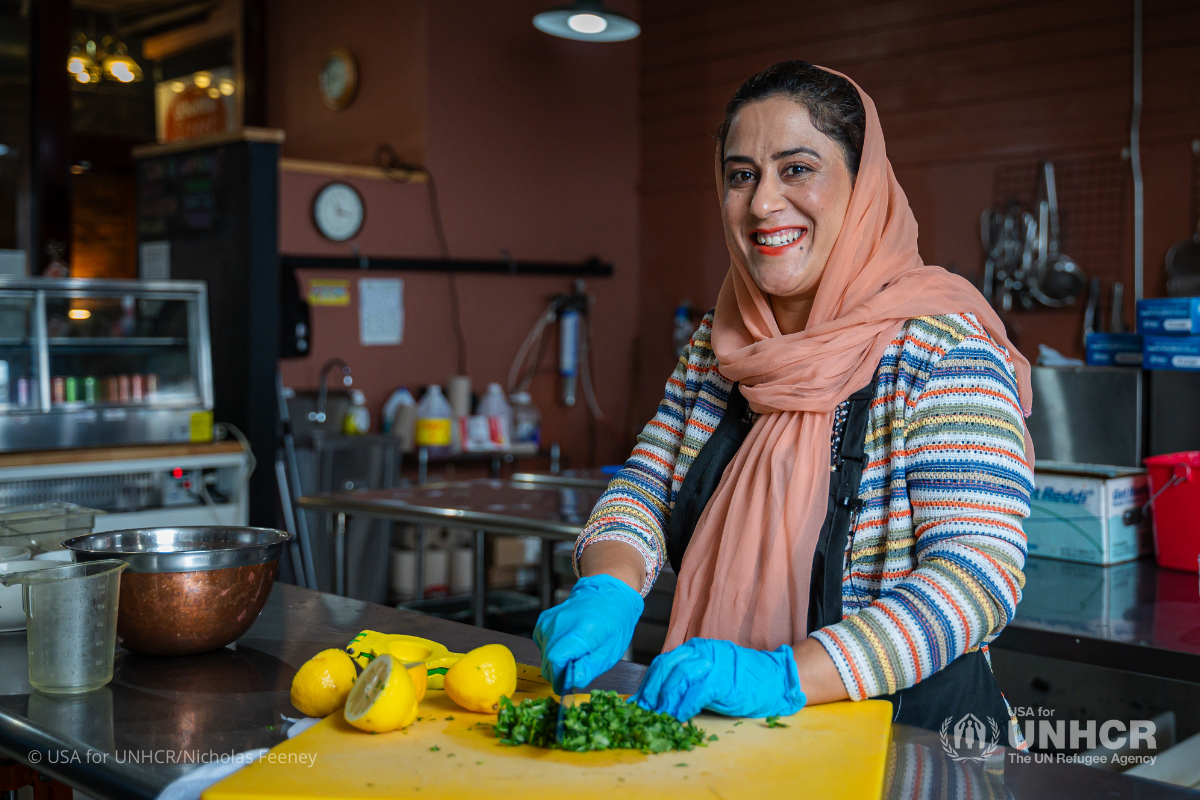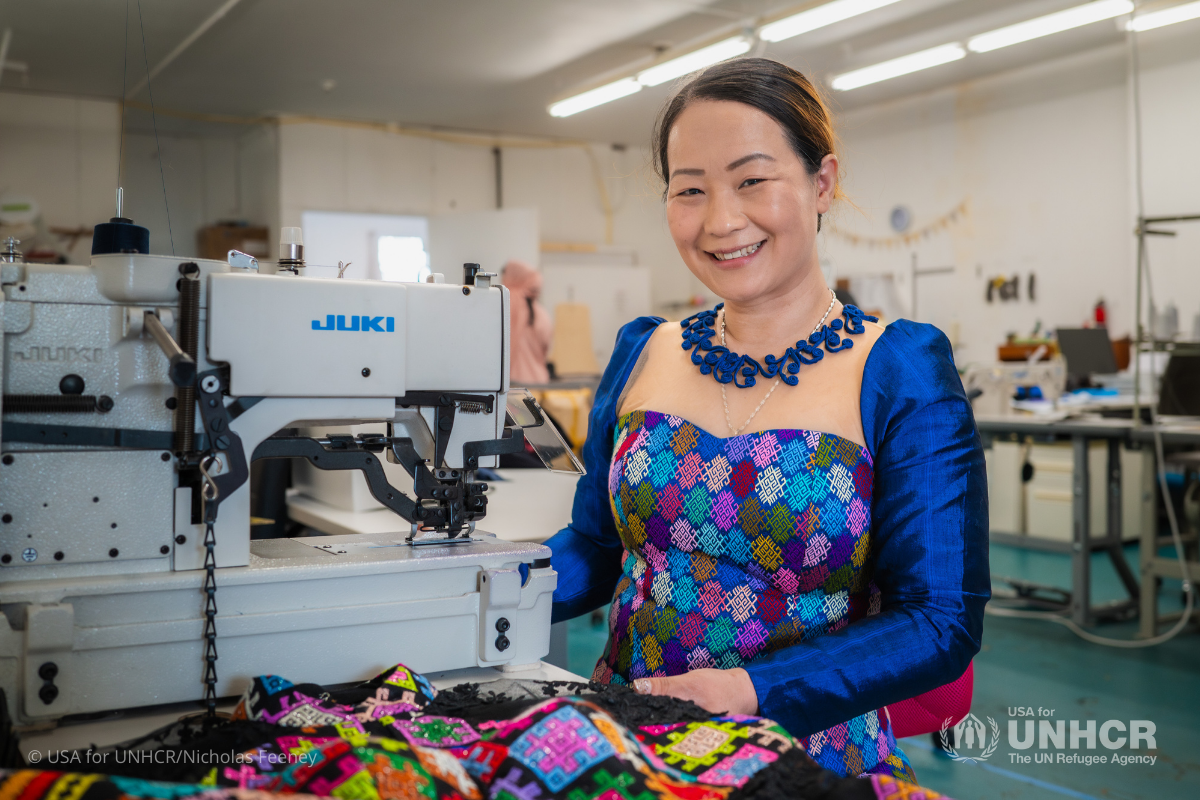Former refugee draws on lived experience to build a more welcoming community in Washington state
For Tshishiku Henry, the drive to make connections began when he was just a teenager and was forced to flee his home in the Democratic Republic of the Congo due to war, finding safety in Dzaleka refugee camp in Malawi. As a young person in the camp, Tshshiku witnessed poverty and a lack of opportunity for children and was determined to do something about it. His solution? The Children’s Arts Club, a children’s arts education and advocacy program.
"Let me create something that will give children a voice to speak for themselves, and I couldn't find a better way than using art and poetry so they can speak about issues that are concerning them,” reflects Tshishiku.
Tshshiku received funding from UNHCR, the UN Refugee Agency, to grow the children’s arts program and later partnered with Plan International Malawi, a local non-profit organization that works to address structural and root causes of poverty.
“The program is still running now and it has improved,” shares Tshshiku. “One of the children [in the program] also created another poetry club and has become a member of the National Poetry Club of Malawi.”
Tshishiku lived in the camp for nearly a decade. During that time, in addition to establishing the Children’s Art Club, he co-founded a radio station and increasingly found himself in leadership positions as a community mobilizer and advocate. His personal and family life also changed. In the camp, Tshishiku met his wife and started a family.
In September 2018, Tshishiku’s life would take a major turn again — his family was selected for resettlement to Seattle, Washington.
At first, change was difficult.
“When I arrived here, I felt it was too cold for me. I felt isolated. I felt left alone. But I had my wife and children, and with the support that I got from the resettlement agency, it really motivated me.”
Globally, there are more than 120 million people like Tshishiku who have been forcibly displaced from their homes, most fleeing war, violence or persecution. UNHCR, the UN Refugee Agency, estimates that less than 5 percent of refugees needing resettlement will be resettled. Once resettled, refugees often face challenges in building a new life in the U.S., such as childcare responsibilities, language skills and lack of transportation. Refugees often have as little as three months of support to become self-sufficient.
Since arriving in the U.S., Tshishiku has made it his mission to address those challenges and create space for refugees to more easily adapt to their new life in the U.S. while finding community. One way he is doing this is through his non-profit, Wide World for Refugee.
“Our mission is to uplift refugees and immigrant artistic talent as a tool for social, economic and cultural development. We aim to engage refugees to speak for themselves, to challenge the narrative and to use their arts to unite people and also to heal from the trauma that they went through,” Tshishiku shares.
In recent years, Tshishiku’s grassroots community advocacy has grown to include refugee advocacy at the state and national levels. He is the Washington state delegate for Refugee Congress, a national, nonpartisan organization built and led by refugees, asylum seekers and other forcibly displaced people to promote the well-being and dignity of all forcibly displaced people.

“I'm working each and every day to speak for the voiceless. And I feel so good when I meet with elected officials and tell them the side of the story [about refugees] that they never knew,” says Tshshiku.
“Tshishiku’s creativity, empathy, passion and warmth are unique, allowing him to build bridges between refugees and elected leaders, and to shape policies that will build more welcoming communities across the U.S,” shares Nili Sarit Yossinger, Executive Director for Refugee Congress.
While Tshishiku continues to help build more welcoming communities in Washington state, he is working to make a global impact for refugees.
In September 2024, Tshishiku launched the first annual Refugees and Immigrants Festival in Kent, Washington. According to Tshishiku, a goal of the festival is to bring refugee artists from every state together to celebrate and raise awareness about issues facing refugees in the U.S. and abroad. Another more ambitious goal is to bring refugees from all over the world to join the festival and showcase their talents and experience.
“My goal is one day to bring [for example] a refugee artist from Burma or a refugee artist from Malawi to come and perform at the Refugees and Immigrants Festival in the United States,” says Tshishiku. “This is going to be a very big movement for refugees around the world, and it will be a platform to fundraise and support other refugees remaining in the camps.”
How to Help
UNHCR, the UN Refugee Agency, supports the full journey of refugees who have been forced to flee violence, war and persecution. Our donors help refugees in their greatest time of need, and their support builds awareness for resettled refugees living in the U.S. Refugees like Tshishiku who have woven themselves into the fabric of American society and are making lasting contributions to their communities. With your help, more refugees will have the opportunity to build peaceful lives and give their families a bright future.


